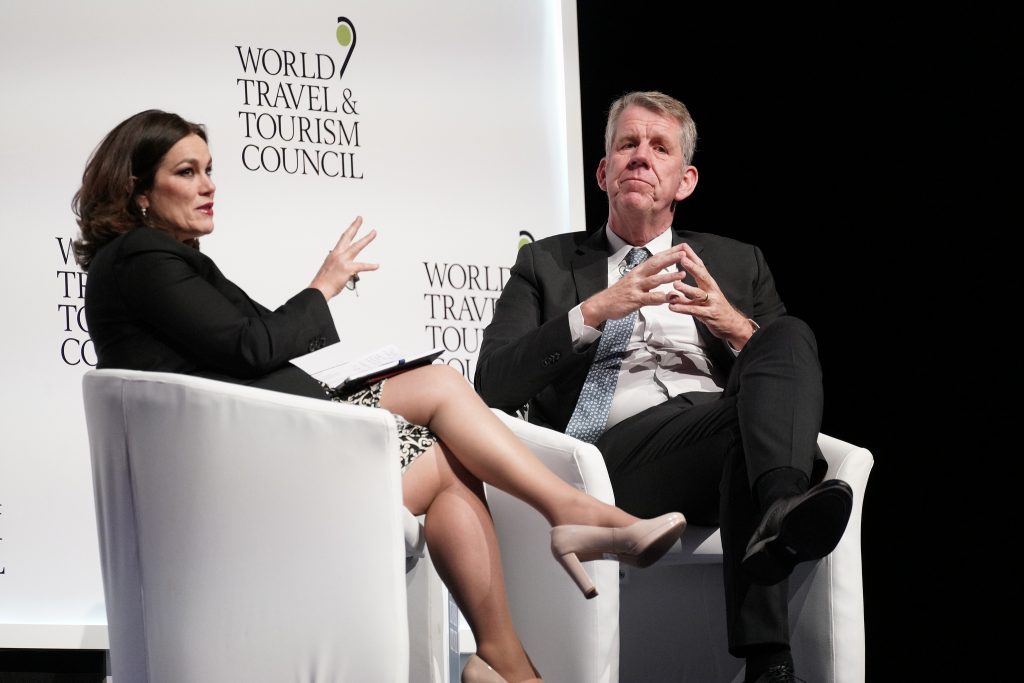Why TUI Favors an Asset-Heavy Approach

Skift Take
Slowly but surely European travel giant TUI Group has shifted from a tour operating model to an integrated tourism company.
What this means in practice is that instead of simply sourcing and selling vacation packages, it now owns more of the entire travel experience: shops, online, airlines, tours, transfers, activities, hotels, and cruise ships.
The big difference between TUI and, say, an Accor or Marriott is that its hotels aren’t in urban areas and are mostly in resorts, meaning that supply is constricted. If TUI wants a new hotel in the Caribbean, for example, it would probably have to build one itself.
“We are not a city hotelier, in fact we are a resort hotelier. We invest only when there’s a scarcity of supply,” said CEO Fritz Joussen at the World Travel and Tourism Council’s Global Summit in Seville, Spain, on Wednesday.
Because TUI owns its own airlines, it then has the ability to fly consumers to these destinations once the hotels are built, thereby ensuring that it makes enough money back.
“It is very profitable to own the hotels,” Joussen said.
Tours and Activities Upside
TUI has around 21 million customers who each on average spend around $1,000 (€900) each. The aim, Joussen said, therefore is to use what it knows about the customers to try and get them to spend $1,100 (€950).
Part of this growth will likely come from targeting travelers in-destination with tours and activities offers. TUI has made a couple of acquisitions over the past year to beef up this side of the business.
“We know a lot about the customer, and we have decided to build the technology… to use machine learning, artificial intelligence, to get 150,000 offers, which is activities in-destination for example, to 21 million customers…and that has a huge upside potential,” Joussen said.
Attempting to squeeze more money out of customers makes sense for TUI especially in such a challenging environment for European tourism companies. TUI has had to cut its profit forecast twice in as many months. Firstly in February, and then, last week, as a result of the worldwide Boeing 737 Max aircraft grounding.




